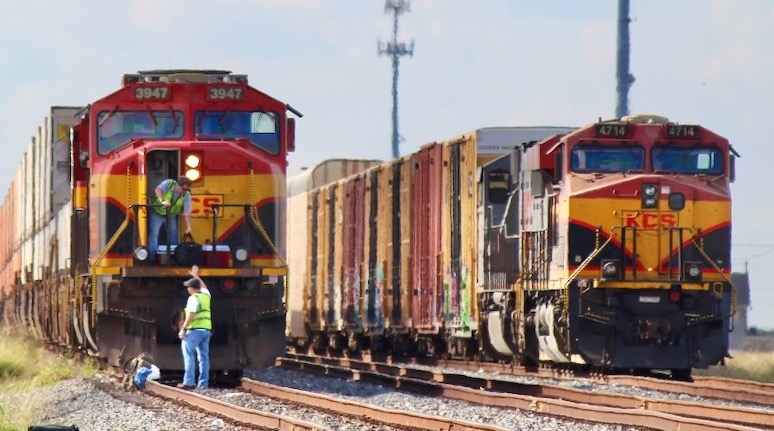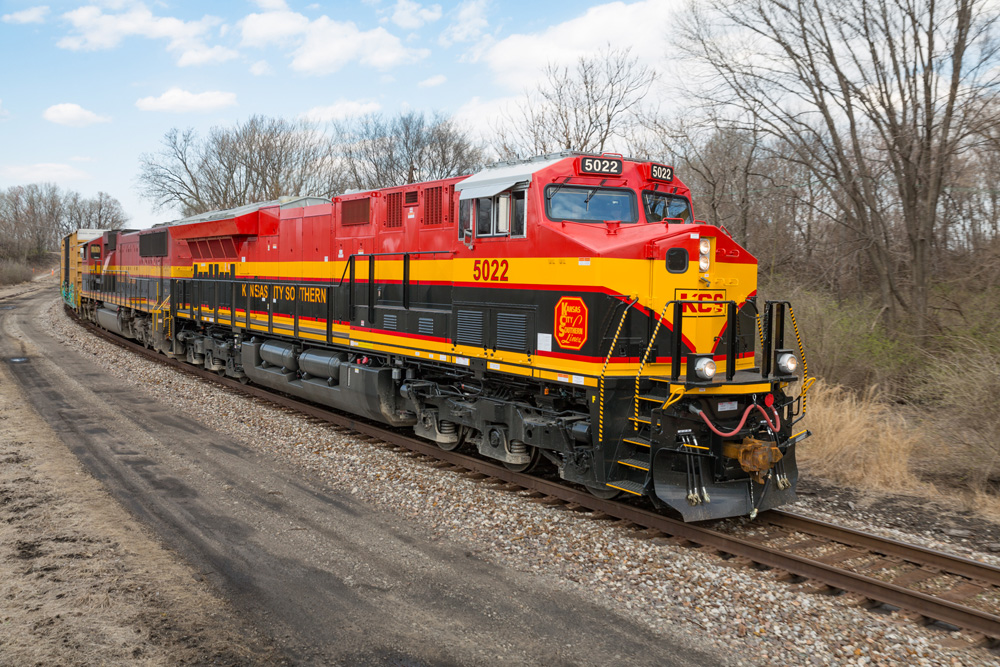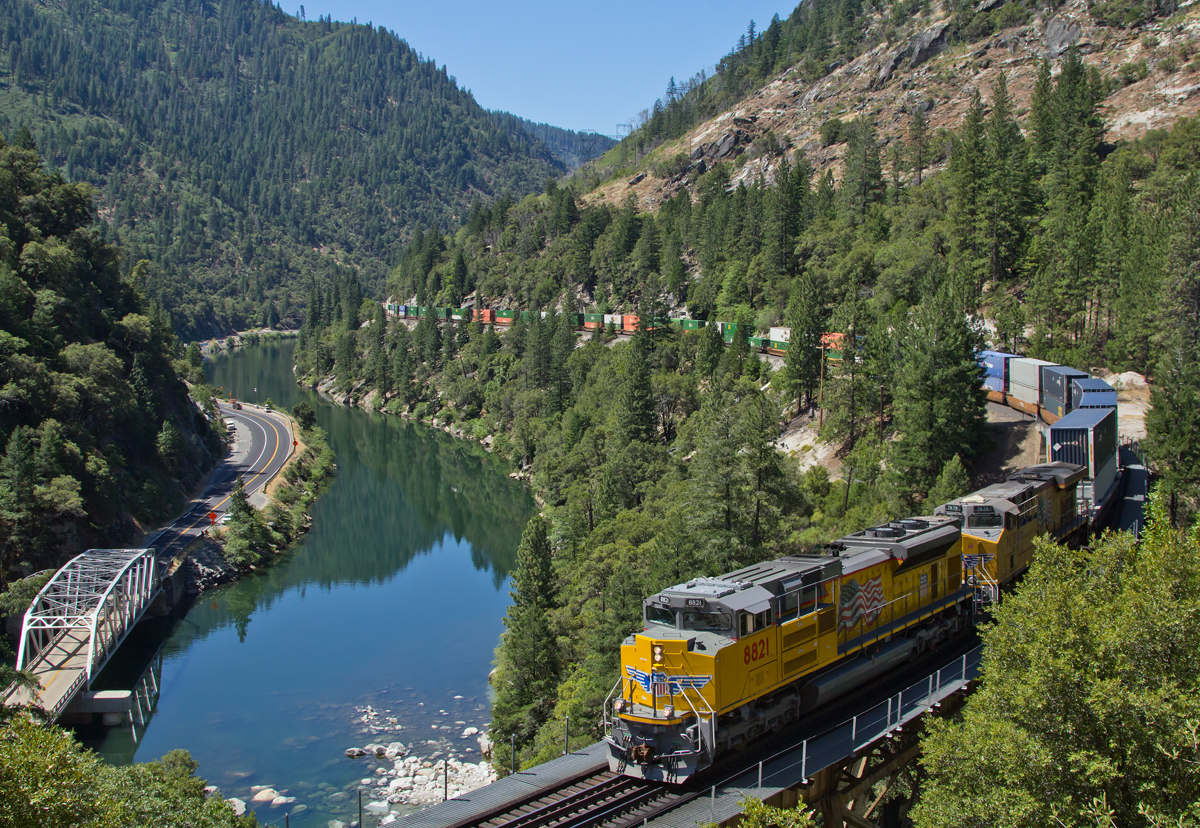
A U.S. railroad strike now seems inevitable.
The Brotherhood of Railroad Signalmen overwhelmingly rejected their tentative contract agreement with the railroads this week, following in the footsteps of the Brotherhood of Maintenance of Way Employees, who turned down their deal earlier this month.
This makes it almost certain that the rank-and-file members of the two largest rail unions — the Brotherhood of Locomotive Engineers and Trainmen and the SMART-TD union that represents conductors — will vote down their proposed contracts as well. They’re now due to release the results of their ballots on Nov. 21.
The unions and the Class I railroads will then head back to the bargaining table. But don’t bet on the two sides reaching a negotiated settlement.
The National Carriers’ Conference Committee last week flatly told the BWMED that the railroads would not accept the union’s proposal for additional paid sick time. “The latest BMWED request for additional benefits is similar to a proposal which was carefully considered and rejected by President Biden’s Presidential Emergency Board and comes weeks after the union entered into a tentative agreement that included the most generous wage package in almost 50 years of national rail negotiations,” the NCCC said in a statement.
In other words, the railroads aren’t willing to budge.
And neither are the unions. Their rejection of the tentative agreements is more about quality of life and working conditions than it is about money. That should be obvious to anyone who has paid attention to railroaders’ complaints about longer shifts, more time spent away from home, fewer opportunities to take time off, and schedules that are more unpredictable than ever.
The conventional wisdom has been that there won’t be a strike and if there was one its duration would be measured in hours rather than days because Congress would step in right away.
But that view ignores changes that have occurred since the last strike in 1992.
First, the railroader mood has darkened in the wake of the massive cutbacks made as CSX Transportation, Norfolk Southern, and Union Pacific adopted Precision Scheduled Railroading and BNSF Railway began running a leaner operation, too. Second, railroads are far more profitable now — and many employees feel the record profits have come partly at their expense. Third, Washington is more dysfunctional than ever, and in today’s hyper-partisan atmosphere Congress doesn’t do anything quickly and rarely does anything right.
A strike isn’t imminent. The status quo period for BMWED will expire on Nov. 19 and for BRS on Dec. 4, according to the Railway Labor Conference. If the operating craft agreements fail to ratify when the votes are counted on Nov. 21, they have a status quo period extension that would run into December.

But if efforts with any one union fail, then a strike or lockout would occur. It’s just a question of when and how long it would last. Freight would stop moving, as would most Amtrak service and commuter train operations in many metropolitan areas.
Shipper groups have already asked the White House to intervene, as the Biden administration did to avert a strike only hours before a September deadline. As negotiations approach the December deadline, expect shippers to divert freight to highways and for BNSF, CSX, NS, and UP to begin to embargo certain types of traffic, such as hazardous materials.
The railroads and unions are heading toward a high-stakes game of chicken at a time when the labor-management relationship is at its lowest point in decades. It’s unclear which side will blink first.
What is clear is that a strike or lockout will be massively disruptive to railroads, their employees, shippers, and an economy that’s already softening and suffering from supply chain problems. Buckle up: the next few weeks could be a wild ride.
You can reach Bill Stephens at bybillstephens@gmail.com and follow him on LinkedIn and Twitter @bybillstephens














You have to wonder if PSR and Wall Street types have a goal of a 0% Operating Ratio.
They are seeing, too late, as usual, that that is unobtainable and unsustainable.
There are days when I wish I had hired on at a railroad, this is not one of them.
This is the time to strike, most people do not care to know or do not really know how much this country rely on the railroads. Everything from day to day living in one way or the other is shipped bye rail, then bye truck. Class 1 railroads have made huge profits during the pandemic and still as of today. The PTC helped make this possible for upper management. The PTC is a good system when used to help with safety and for operating trains safely, not to work your employees 24 hours 365 days a year, employees are on call 24-7. Also upper management wants one crew member to operate a 6000ft plus train my themselves unreal, is that really safe? NOT! With that said the upper management has done nothing to reward their employees for the great work that’s been done without the pandemic crisis and the on going supply shortage. No thank you from upper management or congress, so very sad. Upper management says they would give a little pay bonus but with inflation and recession that’s a joke too. Its not all about the money either its how the railroads treat their employees. Always, away from home and on call 24-7 and penalizing employees for taking sick time, the railroads have lost some really good experience railroaders, so sad! You would think that upper management would try to keep them but all the upper management cares about is record profits just like this administration cares about is power and money NOT whats good for the country.
Wait and see what happens after mid-term elections.
Strike now!
This administration does not give a damn about the working class, we have a joke of a Secretary of Transportation.
These employees gave their all during the height of the pandemic and now with the supply shortage, but the upper management does not care, we need to strike now before mid-terms.
Think any of all your on the spot comments have anything to do with the denied but unexpected departure of Foote at CSX and operations management shakeups at the other flailing class1’s?
The Biden PEB succeeded in the very one thing they were called to do.
Defer any rail strike until after the mid-term elections.
Now I fully expect a full head on, blow out of a strike.
Why would the Unions place their fate in the hands of a fickle Congress, rather than having a position in the negotiations?
Union leadership, not membership, called shifting the blame
Too bad Amtrak will suffer from this just as it is recovering.
You can blame this whole mess on Wall Street and the stock markets. Greedy stockholder and investors are using the railroads and other big business to manipulate things for their own selfish reasons and purposes. The railroads are beholden to Wall Street and will do anything to fill their coffers with money and vote their executives big bonuses. The poor suffering railroad worker has to bear the brunt of their actions and take it on the chin. This is also true for other industries too. The American worker is being bullied and beaten by the menace of a monster and business dictator called Wall Street. Things won’t change until the people stand up tp Wall Street and take down or put Wall Street in it’s place
Joseph C. Markfelder
Railroads look like 1893-4 in the way they treat their employees and the way profits are the only thing that counts.
The “most pro-union president ever” and his minions in Congress will pass legislation after the election forcing the PEB contract on workers. The industry has invested heavily with lobbyists and campaign contributions and this investment has paid huge dividends with light regulation.
The great resignations in the industry will continue. After losing even more experienced workers, safety will certainly go downhill.
You seem to forget that it was the Republicans in Congress that wanted to force the PEB recommendations on the unions in the first place.
Bullcrap Mr. Holte, sleepy Joe’s puppeteers delayed the votes and public release of the counts until Nov 21
All of the railroad corporations are banking on Congress to put a chain around the unions by blocking the strike. If we ever have a chance to stop the RR from becoming an unworkable job it’s right now. How this goes will set precedent, if they block the strike, this career is done. If they let the strike go for even a week, it will show the CEO’s that they don’t weild ultimate power in controlling their employees lives, if Congress blocks the strike, it will show them they do, and this will be another ruined occupation. Turnover will skyrocket, and this job will officially be not worth it.
Working for BNSF as an engineer I can tell you the morale is the worst it’s ever been at. Long time employees have, and will continue to quit in unprecedented numbers. We’ve lost lots of employees with 5, 10, 15, 20+ years of service. We just had a guy quit with 28.5 years in. This NEVER HAPPENED before this.while EVERY other Class 1, and every other large corporation, gave their employees bonuses for working all through COVID, ranging from $1000.00 to $3000.00, BNSF gave its employees NOTHING but a 20 cent postcard saying “thanks”, all while recording record profits. That’s the kind of “slap in the face” that has crushed morale.
It’s not always about the money NCCC (and AAR), it’s about the quality of the work conditions.
It’s about whether or not the next generation will take these jobs … or will they look elsewhere for a career.
It’s not just normal attrition that happens in any field of work. It’s about dedicated, highly skilled employees taking early retirement that need to be replaced.
The next train you see is crewed by men (or a few women) who have had more than enough of it.
Yes, “three decades.”
The various union brotherhoods are very frustrated with rail management right now, with some good reasons and so a strike at some point later this fall seems likely ….
There was a short strike in 1992
Shouldn’t the headline say “three decades”?
That’s right